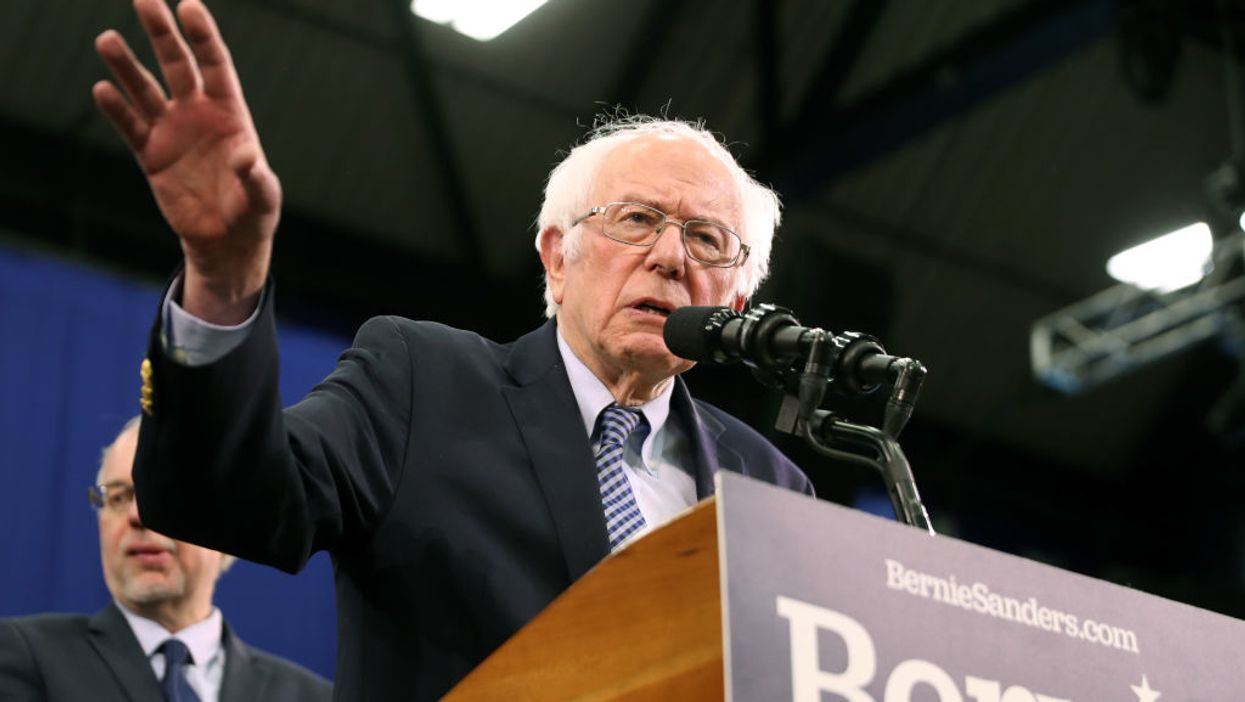
Joe Raedle/Getty Images

Some of them are not even close
Democratic presidential candidate Bernie Sanders took to Twitter Thursday afternoon to promote his health care plan. In a tweet, the socialist senator from Vermont said, "Remember: our 'crazy idea' of universal health care is a reality in..."
He then proceeded to list 27 countries, mostly in Europe, that left-wing Americans often cite as examples of nations with the kind of health care they would want for the United States.
There's only one problem: Not a single country Sanders listed has anything like the socialist health care system he wants to impose on the American people. Literally, not a single one.
Let's start by identifying the key features of Sanders' health care plan as identified by the Twitter account "Bad Econ Takes" and all of which are listed on Sanders' website:
The Democratic presidential candidate listed three countries — Israel, the Netherlands, and Switzerland — whose health systems are nothing like what Sanders is proposing. None of these countries have a public health insurance program that everyone automatically qualifies for and covers prescription drugs and other services; all of them operate on private insurance; and none of them prohibit co-payments or deductibles.
The Swiss, for instance, have achieved universal health coverage entirely through private insurance plans that everyone is required to purchase. Meanwhile, the Israelis have access to a mix of large non-profits/NGOs and private insurance companies. About 40 percent of Israelis purchase private health insurance. Similarly, the Dutch do not have anything like "Medicare For All." Their health system is a privately run two-track system where partly state-financed private insurance covers routine doctor visits and hospital stays, and a state-run system kicks in for long-term elderly care and the terminally ill.
Sanders often points to the British, Canadian, and Danish health systems as role models. The problem is that their systems are also quite different from what he's proposing.
To be clear, all three countries do have large state-run insurance mechanisms. However, unlike Sanders' proposal, Canada and Denmark do have some private insurance markets and the residents of those countries have co-payments and deductibles. Moreover, their immigration and naturalization laws are far stricter than those of the United States to qualify for benefits.
The British NHS program may be the closest to what Sanders is proposing in that the Brits do have a nationalized system with limited private insurance; however, there are some major differences. For instance, in the U.K., prescription medications, dental care, and eye care do require payments.
We'll go into greater detail some other time, but for the time being, the tweet below by "Bad Econ Takes" provides a summary of how these countries' health programs differ from Sanders' Medicare For All scheme.